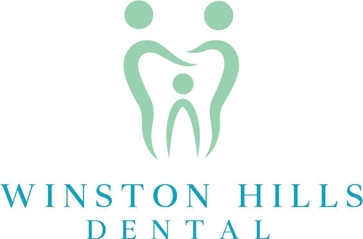Dental emergencies can be a frightening experience for those affected. Recognizing the signs and symptoms of a dental emergency is essential to ensure proper diagnosis and treatment. This article will provide an overview of the common types of dental emergencies and how to recognize them.
The most common types of dental emergencies are:
- Toothaches, most often caused by tooth decay, a cracked tooth, or a gum infection
- Broken teeth caused by trauma or a hard fall
- Abscesses caused by bacterial infections can cause serious pain and swelling
- Soft tissue injuries, generally caused by lacerations or burns to the mouth
- Impacted teeth, caused by teeth being blocked from emerging from the gums
Knowing the different signs and symptoms associated with these types of emergencies is important to seek appropriate treatment.
Toothaches
An aching sensation in the teeth, gums, or jaw can indicate a toothache, a common dental emergency. Recognising the signs of a severe toothache is important, as it often indicates that dental treatment is required.
Depending on the cause of the toothache, it may be necessary to visit an emergency dentist. A cold compress may temporarily relieve dental pain; however, if the pain persists, it is essential to seek professional dental treatment.
Complications such as tooth loss, infection, or a knocked-out tooth may occur if a toothache is left untreated. In such cases, a root canal treatment may be required to restore the affected tooth.
Therefore, it is important to be aware of the signs and symptoms of a toothache, as it may indicate a dental emergency.
Broken Teeth
Broken teeth can result in considerable discomfort and require urgent medical attention; however, the severity of the fracture must be assessed, and the appropriate treatment prescribed before any restorative work is conducted.
While some broken teeth can be managed at home using over-the-counter medications to treat the pain, more severe fractures necessitate a visit to the dentist.
When it comes to dental care, broken teeth require emergency treatment and, depending on the severity of the fracture, can lead to severe pain.
At a dental clinic, the dentist will assess the fracture and make a diagnosis. The dentist may refer the patient to a specialist if the fracture is more severe.
To ensure that their patients receive the best care, many dental practices are open for business beyond normal working hours, and some may even have an answering machine in place for out-of-hours emergencies.
Abscesses
Abscesses can be extremely painful and concerning dental issues, often requiring urgent medical attention. They are an infection usually caused by untreated tooth decay, dental trauma or gum disease.
An abscess can cause severe tooth pain, uncontrolled bleeding and facial swelling. It is important to seek emergency dentistry services if an abscess is suspected. An emergency appointment for professional dental services should be booked as soon as possible.
A milk container can keep the tooth moist until emergency care is available. It is important never to attempt to drain an abscess without the help of a qualified dentist, as this could lead to further complications.
It is essential to seek immediate emergency dental care to avoid further infection, pain and damage to the teeth.
Soft Tissue Injuries
Soft tissue injuries can be difficult to detect due to the presence of only subtle signs, yet their prompt treatment is essential for maintaining good dental health.
Injuries to the soft tissue can include lacerations, puncture wounds, and avulsions, where the tooth is completely dislodged from its socket.
In most cases, the affected tooth should be immediately placed in a cup of warm water to reduce the chances of bacterial infections, and the patient should seek urgent medical attention.
If a loose adult tooth is present, the tooth root should be handled with extreme care, as any tissue fragments may be important for tooth extraction or replanting.
In the case of wisdom teeth, severe bleeding may occur and require immediate attention.
In all cases, prompt treatment is essential for maintaining good oral health and restoring the patient’s normal functionality.
Impacted Teeth
Impacted teeth can occur when a tooth is blocked from emerging from the gums or when an adult tooth is prevented from erupting correctly. This dental issue can be caused by inadequate space in the mouth, allowing the permanent tooth to get stuck in the jawbone or gums.
Recognising the warning sign of an impacted tooth is important, as this can become an urgent care situation. Symptoms include tooth pain, a wobbly tooth, and difficulty chewing food. Counter pain medication and rinsing the mouth with salty water can help temporarily, but a visit with an emergency dentist is necessary for dental restorations.
It is also important to note that impacted teeth can cause long-term oral health issues if not treated promptly.
Key Takeaways
The consequences of dental emergencies are often severe, so it is essential to be able to spot the signs. Toothaches, broken teeth, abscesses, soft tissue injuries, and impacted teeth are some of the issues that can lead to serious medical conditions.
This knowledge can be the difference between a minor inconvenience and a major problem. It is up to us to be aware of these potential issues and take advantage of the resources available to protect our teeth from the unexpected.
With this understanding, we can help to ensure that our teeth remain healthy and free from unnecessary pain and suffering.
If you or someone you know is experiencing a dental emergency, please get in touch with Winston Hills Dental. Located in Winston Hills, NSW, Winston Hills Dental is a trusted provider of quality dental care and can help you get your teeth back to their best. Don’t wait until it’s too late. Call Winston Hills Dental today!

